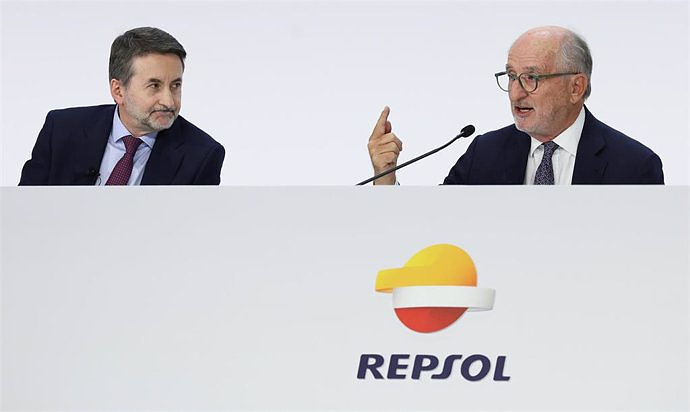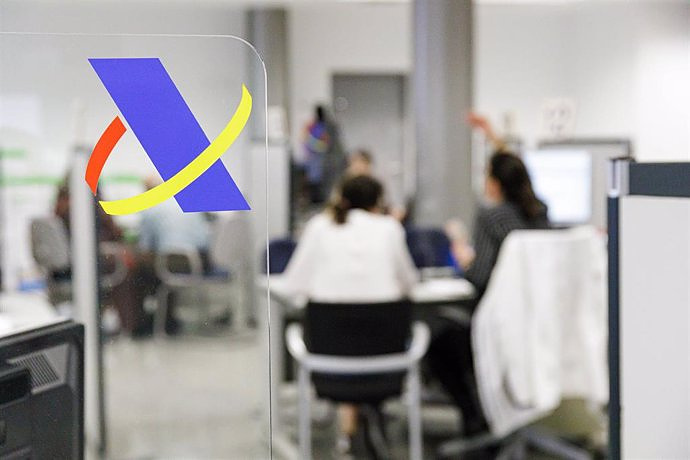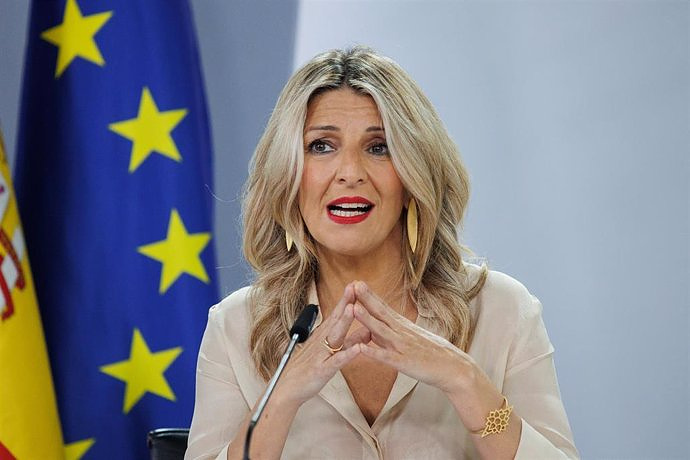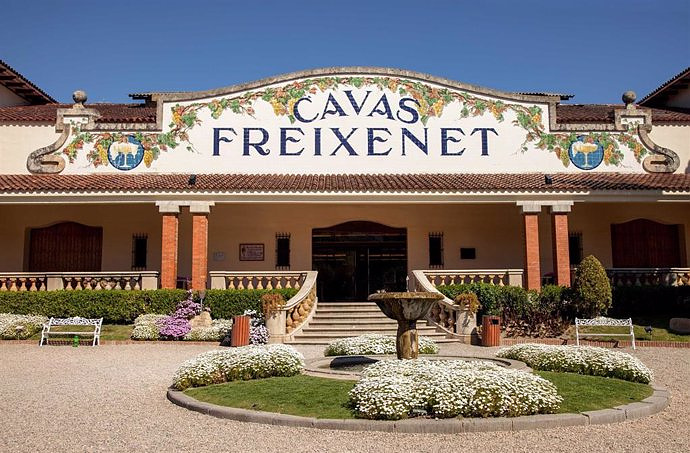The Prosecutor's Office foresees a trickle of reviews and even the collapse of cases due to changes in this crime
MADRID, 14 Dic. (EUROPA PRESS) -
The Anti-Corruption Prosecutor's Office will have to adapt its indictment on 'Operation Kitchen', regarding the alleged espionage orchestrated by Jorge Fernández Díaz's Ministry of the Interior against former PP treasurer Luis Bárcenas to steal sensitive information, to the reform of the crime of embezzlement designed by PSOE and ERC, according to tax sources consulted by Europa Press.
The Anti-Corruption accusation in this separate piece number 7 of the 'Villarejo case' is practically done, waiting for the Central Investigating Court Number 6 to give access to the complete material of the investigation carried out during these years, a movement that the The Public Prosecutor's Office has been waiting for weeks.
However, sources from this Special Prosecutor's Office have advanced that, foreseeably, the accusation outlined will have to be changed to adjust it to the new configuration of the crime of embezzlement that the PSOE and ERC have raised, which means lowering the current penalties where it is observed that they do not there is a profit motive or where the criminal conduct consists of using the money for a purpose other than that intended.
In 'Kitchen' the accusations made by the popular accusations exercised by the PSOE and Podemos are already known, which respectively demand a sentence of 47 years and 41 years in prison for the former Minister of the Interior, whom the judicial investigation has located as the alleged 'brain' of 'Kitchen', an illegal operation in which his former Secretary of State Francisco Martínez, former DAO Eugenio Pino and commissioners such as José Manuel Villarejo also participated.
Other sources from the same Prosecutor's Office warn that this will not be the only case where the accusation made must be reviewed, if finally the text approved by the Cortes Generales is the one already known.
In addition, tax sources predict that the trickle of reviews will not be restricted solely to indictments, but that a succession of reviews of final convictions is also expected, pointing as an example to the dynamics generated by the entry into force of what is known as 'law of only yes is yes'.
The aforementioned sources observe a third point of impact of the embezzlement reform: prescription. And this because a drastic drop in penalties would also lead to a collapse in the expiration periods of the crimes.
The consequence, these sources explain, is that those cases where the investigations started when criminal responsibility was about to expire could have to be closed if this reduction in time leads to the conclusion that when they were opened it could no longer be prosecuted criminally.
However, at the same time they emphasize that this impact will be cushioned because it will only affect cases that have not been tried, so those who have at least one first sentence will be immune to this effect.
This consequence is derived from article 131 of the Penal Code, which links the amount of the penalties to the statute of limitations, so that "crimes prescribe at 20 years, when the maximum penalty indicated for the crime is imprisonment of 15 years or more "; and "at 15, when the maximum penalty established by law is disqualification for more than 10 years or imprisonment for more than 10 and less than 15 years."
The crimes will expire after 10 years, the precept continues, "when the maximum penalty indicated by law is imprisonment or disqualification for more than 5 years and that does not exceed 10"; and at 5 years for other criminal offences, "except minor offenses and offenses of libel and slander, which prescribe after one year."
It should be remembered that the embezzlement reform draws three different assumptions: when there is a profit motive, maintaining the current penalties (from 2 to 12 imprisonment and 6 to 20 disqualification); and two new types: one non-profit for "private use" (from 6 months to 3 years in prison and disqualification from 1 to 4 years) and another for when the embezzled goes to a purpose other than that intended (from 1 to 4 years in prison and 2 to 6 years of disqualification).

 Exploring Cardano: Inner Workings and Advantages of this Cryptocurrency
Exploring Cardano: Inner Workings and Advantages of this Cryptocurrency Seville.- Economy.- Innova.- STSA inaugurates its new painting and sealing hangar in San Pablo, for 18 million
Seville.- Economy.- Innova.- STSA inaugurates its new painting and sealing hangar in San Pablo, for 18 million Innova.- More than 300 volunteers join the Andalucía Compromiso Digital network in one month to facilitate access to ICT
Innova.- More than 300 volunteers join the Andalucía Compromiso Digital network in one month to facilitate access to ICT Innova.-AMP.- Ayesa acquires 51% of Sadiel, which will create new technological engineering products and expand markets
Innova.-AMP.- Ayesa acquires 51% of Sadiel, which will create new technological engineering products and expand markets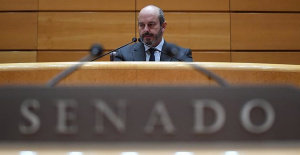 The amnesty faces its final stretch in the Senate with the question of whether it will be voted this week or after the Catalan elections.
The amnesty faces its final stretch in the Senate with the question of whether it will be voted this week or after the Catalan elections. The PP will send to Moncloa the 1,136 letters from citizens with their real problems that it received in Sánchez's reflection
The PP will send to Moncloa the 1,136 letters from citizens with their real problems that it received in Sánchez's reflection Carola Miró, wife of former president of the Generalitat Quim Torra, dies
Carola Miró, wife of former president of the Generalitat Quim Torra, dies 12M.- Díaz asks Sánchez to recognize the Palestinian State in the next Council of Ministers
12M.- Díaz asks Sánchez to recognize the Palestinian State in the next Council of Ministers How Blockchain in being used to shape the future
How Blockchain in being used to shape the future Not just BTC and ETH: Here Are Some More Interesting Coins Worth Focusing on
Not just BTC and ETH: Here Are Some More Interesting Coins Worth Focusing on A sensor system obtains the fingerprint of essential oils and detects if they have been adulterated
A sensor system obtains the fingerprint of essential oils and detects if they have been adulterated Faraday UPV presents the 'Origin' rocket to exceed 10 km of flight: "It is the beginning of the journey to space"
Faraday UPV presents the 'Origin' rocket to exceed 10 km of flight: "It is the beginning of the journey to space" The Generalitat calls for aid worth 4 million to promote innovation projects in municipalities
The Generalitat calls for aid worth 4 million to promote innovation projects in municipalities UPV students design an app that helps improve the ventilation of homes in the face of high temperatures
UPV students design an app that helps improve the ventilation of homes in the face of high temperatures A million people demonstrate in France against Macron's pension reform
A million people demonstrate in France against Macron's pension reform Russia launches several missiles against "critical infrastructure" in the city of Zaporizhia
Russia launches several missiles against "critical infrastructure" in the city of Zaporizhia A "procession" remembers the dead of the Calabria shipwreck as bodies continue to wash up on the shore
A "procession" remembers the dead of the Calabria shipwreck as bodies continue to wash up on the shore Prison sentences handed down for three prominent Hong Kong pro-democracy activists
Prison sentences handed down for three prominent Hong Kong pro-democracy activists ETH continues to leave trading platforms, Ethereum balance on exchanges lowest in 3 years
ETH continues to leave trading platforms, Ethereum balance on exchanges lowest in 3 years Investors invest $450 million in Consensys, Ethereum incubator now valued at $7 billion
Investors invest $450 million in Consensys, Ethereum incubator now valued at $7 billion Alchemy Integrates Ethereum L2 Product Starknet to Enhance Web3 Scalability at a Price 100x Lower Than L1 Fees
Alchemy Integrates Ethereum L2 Product Starknet to Enhance Web3 Scalability at a Price 100x Lower Than L1 Fees Mining Report: Bitcoin's Electricity Consumption Declines by 25% in Q1 2022
Mining Report: Bitcoin's Electricity Consumption Declines by 25% in Q1 2022 Oil-to-Bitcoin Mining Firm Crusoe Energy Systems Raised $505 Million
Oil-to-Bitcoin Mining Firm Crusoe Energy Systems Raised $505 Million Microbt reveals the latest Bitcoin mining rigs -- Machines produce up to 126 TH/s with custom 5nm chip design
Microbt reveals the latest Bitcoin mining rigs -- Machines produce up to 126 TH/s with custom 5nm chip design Bitcoin's Mining Difficulty Hits a Lifetime High, With More Than 90% of BTC Supply Issued
Bitcoin's Mining Difficulty Hits a Lifetime High, With More Than 90% of BTC Supply Issued The Biggest Movers are Near, EOS, and RUNE during Friday's Selloff
The Biggest Movers are Near, EOS, and RUNE during Friday's Selloff Global Markets Spooked by a Hawkish Fed and Covid, Stocks and Crypto Gain After Musk Buys Twitter
Global Markets Spooked by a Hawkish Fed and Covid, Stocks and Crypto Gain After Musk Buys Twitter Bitso to offset carbon emissions from the Trading Platform's ERC20, ETH, and BTC Transactions
Bitso to offset carbon emissions from the Trading Platform's ERC20, ETH, and BTC Transactions Draftkings Announces 2022 College Hoops NFT Selection for March Madness
Draftkings Announces 2022 College Hoops NFT Selection for March Madness
